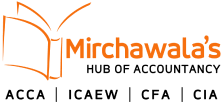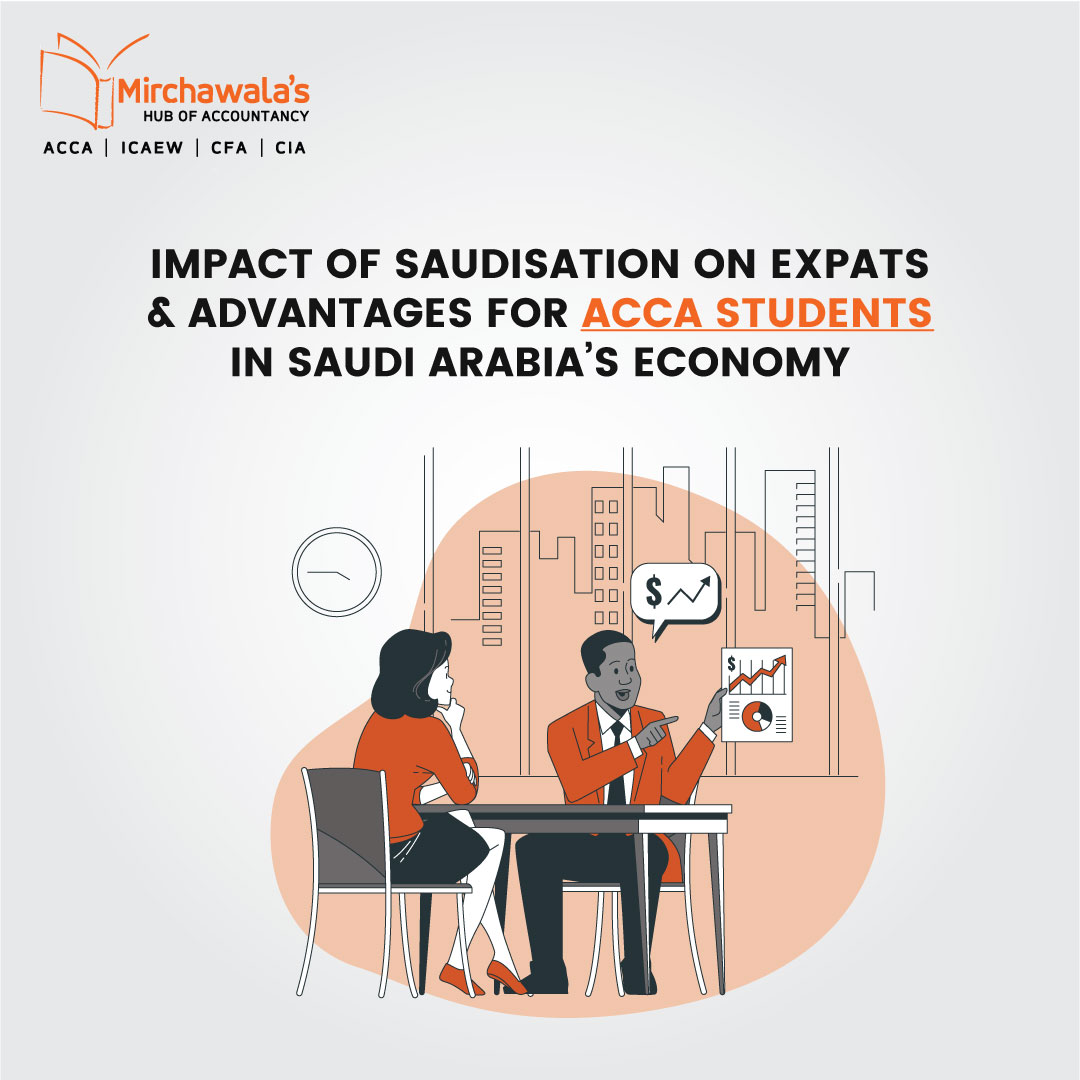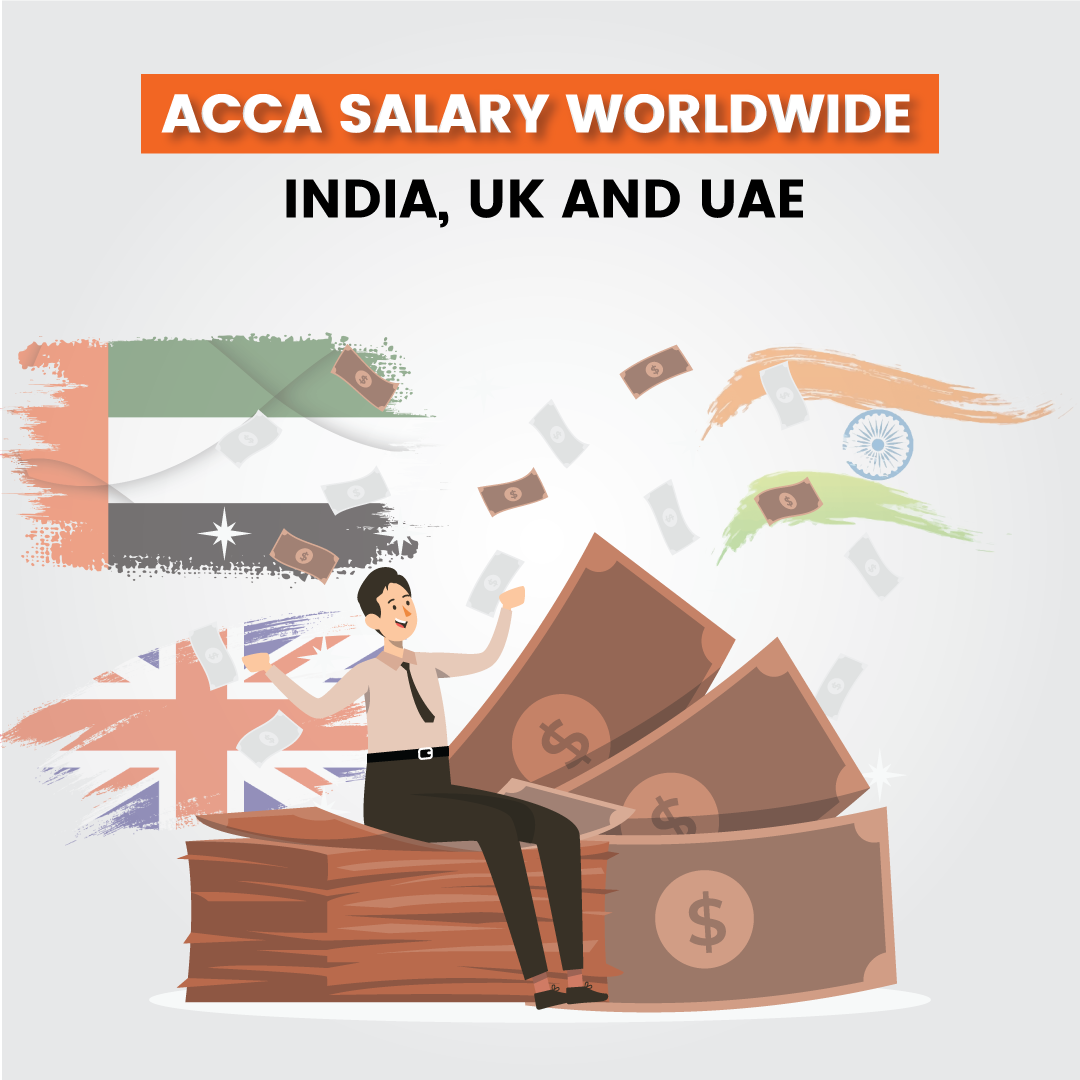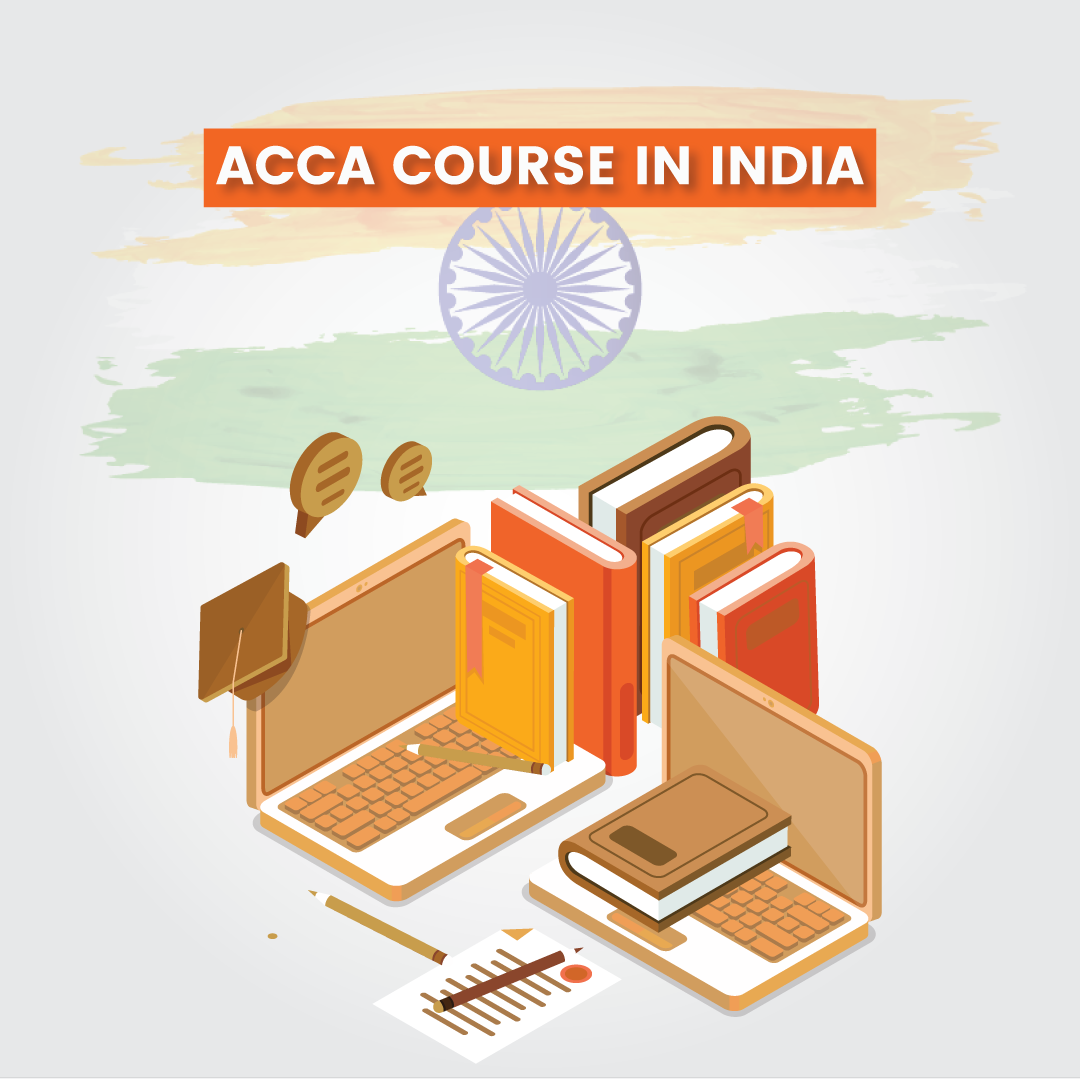Impact Of Saudisation On Expats And Advantages for ACCA Students in Saudi Arabia’s Economy
Impact Of Saudisation On Expats And Advantages for ACCA Students in Saudi Arabia’s Economy
Saudisation is a Saudi Government Policy introduced in 1985 by the name “Ninth Development Plan” (NTP). The specific goal of this policy was to practice “exclusivity” by encouraging all the private companies operating within Saudi Arabia to hire Saudi nationals and imposing penalties and certain restrictions on companies that employ foreign labor. This policy also aims to reduce the dependence of Saudi Arabia’s economy on foreign labor. Expats are those individuals who live outside of their home country for various reasons that mostly include; better job opportunities, a better standard of living, or/and pleasant climate. ACCA Students hold a comparative advantage as compared to other fields’ students since Saudi Arabia’s demand for accountants is at an all-time high and Saudisation policies are much more relaxed for ACCA expats coming from Pakistan, India, Nepal, and other developing countries.
Mirchawala’s Hub Of Accountancy (MHA), a well-established institute for ACCA, CFA, CA, and CIA prepares students well for their pursuit of high-paying jobs in Middle Eastern countries like Saudi Arabia.
We will cover all the above subjects in detail in the following prompts.
Practical Implementation of Saudisation
Although this policy was introduced in 1985. Effective action was taken by Saudi Arabia’s Ministry of Labor in 2007 when it was said that 70% of the workforce must be Saudi Nationals. The program classifies the country’s private Businesses into six categories: Platinum, High Green, Mid Green, Low Green, Yellow, and Red. Platinum is the highest percentage category, followed by High Green and so on; with the Yellow and Red categories being the lowest. Firms included in the highest percentage ranking enjoy favorable government policies including Subsidies and Tax cuts meanwhile firms ranking in the lowest percentage experience excessive taxes and penalties for lack of compliance. Major industries experienced staggering growth of Saudi Nationals from 2011 to 2013;
- – 59% growth of Saudi employees in the transportation sector
- – 34% average growth in the construction sector
- – 25% growth in manufacturing and wholesale and retail sectors
Meanwhile, the Saudis’ Growth rate was 4%, 14%, and 7% respectively. From September 11, 2018 Work area was reserved for Saudi Nationals in watch shops, optical stores, medical equipment stores, electrical and electronics shops, outlets selling car spare parts, building material shops, outlets selling all types of carpets, automobile and mobile phone shops, shops selling home furniture and ready-made office material, sales outlets of ready-made garments, children clothes and men’s supplies, household utensils shops and pastry shops. However, technical fields like Accounting and Auditing were not reserved because most of the skilled labor is produced in Pakistan through ACCA programs and Saudi nationals are not as well trained as the ACCA students in Pakistan.
The Ministry of Labor deployed 200 inspectors in all regions of the Kingdom to follow up on the implementation of its decision restricting work to Saudis. In the same year, the minister issued a ministerial decision to replace expat workers with Saudi workers in the sales outlets of 12 economic activities in the retail sector.
Impact On Businesses through Saudisation
Businesses started facing new challenges due to the allocative inefficiency in the Labor Market. The reform introduced in 2018 was expected to create 60,000 jobs however the demand rose to 700,000 jobs in 2020. Many industries such as cab driving and selling gold went into complete chaos due lack of sufficient skills and no initiative. One Saudi employer complained to a Western journalist, Max Rodenbeck “I want to hire Saudis, but why I would hire someone who I know won’t show up, won’t care, and can’t be fired?”. The former employees, the expats, were to work 7 days a week, 10 to 12 hours shifts on minimum wages.
The same standards when applied to the Saudi workers resulted in complaints about the stringent working conditions. The private firms experienced decreasing productivity from the labor force. The businesses that once were able to hunt for talent worldwide were now limited to only Saudi Nationals.
Even though the Human Resources Development Fund (HADAF) has transformed its 22 branches across the Kingdom into employment centers to support Saudi job seekers, in the long term, the businesses still experienced a shortage in labor such as engineers, architects, IT specialists, and healthcare practitioners. Due to the decrease in productivity observed in 2020, the government has eased up the strict compliance of Saudisation when it comes to ACCA-certified expats as they understand that effective accountancy is the backbone of every business and they cannot take any risks.
Challenges Faced By Expats
Before Saudisation, the private sector was dominated by expats from Pakistan, India, the Philippines, and Other Gulf Countries like Oman and Bahrain. This makes sense since the ex-pats made up 37% of the net population of Saudi Arabia in 2011. However, since the implementation deadline of the program, the working ex-pats found themselves in a challenging position from a financial point of view. Many simply migrated back to their home countries or other countries for better financial opportunities, but many got unemployed as well.
The plan introduced by the Nitaqat System to get unemployment down to 5.5% by 2015 was not realized. The expats experienced strict visa regulations where the barrier of entry was increased by increasing requirements, conditions, and technicalities. Expats were banned from most job positions such as watch shops, optical shops, car retail shops, etc. The Saudi government has implemented the expat-dependent fee.
This was imposed in 2017, and the fee obliges working ex-pats to pay additional fees for each dependent or companion they have. Currently, the fee is 100 SAR per month for yourself and each dependent in the country. This will rise each year until 2020 when it will be 400 SAR each per month. Due to the above measures, the number of expats dropped from 8.3M to 7.5M from 2016 to 2020.
It is worth noting that only the unskilled labor market expats were heavily affected by Saudisation. Skilled ex-pats like engineers, doctors, and accountants were protected by their businesses as they added more value to these businesses. ACCA and CA-certified Expats still hold their jobs in their firms in Saudi Arabia and not just that, Many are granted citizenship and residence by the state.
Impact Of ACCA In The Accounting Field And Conclusion
Although strict implementations are being practiced in the perfect competition labor market, we still see that many technical fields like Accounting and Auditing require skilled labor that is mostly produced in countries like Pakistan through ACCA, CA, and CFA courses.
SOCPA, short for Saudi Organization for Chartered and Professional Accountants has contributed to the passing of the Accounting and Auditing Law in 2021 where expats experience favorable policies to further their professions in Accounting Fields. Saudi Arabia experiences a shortage of local skilled employees in the accounting field. Crucial fields like financing, taxation, and auditing a driving factors for a business’s success. In short, all of these things matter and some of them do create problems for the people looking for jobs but ACCA comes out as a different qualification and holds its members in the spotlight of success.








